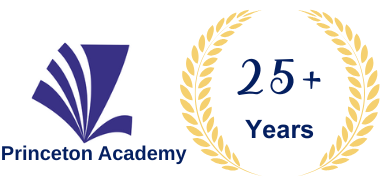📌 Introduction
With stricter compliance norms, rising employee awareness, and mandatory grievance redressal frameworks under labour laws, even a small procedural lapse can lead to costly legal consequences.
This program is designed to equip participants with the legal know-how and practical skills to manage misconduct, issue charge-sheets, conduct domestic enquiries, and take disciplinary action that is fair, documented, and defensible in court.
🎯 Course Objectives
🧩 Identify and resolve workplace grievances through structured redressal mechanisms
📜 Stay legally compliant with the ID Act, Standing Orders, and related labor laws
🛡️ Manage disciplinary actions with fair procedures and proper documentation
🔍 Learn from real-life case studies to avoid common errors and ensure defensibility
Workplace Grievances – Roots, Triggers & Prevention
- Identifying types of employee grievances—individual vs collective, formal vs informal
- Common causes: miscommunication, bias, unfair treatment, HR policy gaps
- Role of immediate supervisors and functional managers in early grievance resolution
- The grievance redressal hierarchy – formal mechanisms and timelines
- Legal mandates under Industrial Disputes Act and Shops & Establishment Acts
- Proactive grievance prevention strategies – transparency, trust-building, documentation
Disciplinary Action—Legal Foundations & Procedural Discipline
- What constitutes ‘misconduct’ under Standing Orders and HR policies
- Drafting legally sound caution letters, warning memos, and show cause notices
- Dos and don’ts of verbal warnings and preliminary discussions
- Difference between Minor and Major misconduct – choosing proportionate action
- Suspension pending inquiry—when, how, and rights of the suspended employee
- Legal framework: ID Act, Standing Orders Act, and case law implications
Conducting Domestic Enquiry – From Charge-Sheet to Report
- Drafting a precise, unambiguous, and sustainable charge sheet
- Appointing competent Presenting & inquiry officers—roles and responsibilities
- Ensuring principles of natural justice—notice, hearing, impartiality, representation
- Examination of evidence and cross-questioning—procedural control
- Handling non-cooperation, adjournments, and ex parte situations
- Final report writing—format, findings, reasoning, and evidentiary basis
Post-Enquiry Actions, Court Defensibility & Managerial Learnings
- Role of the Disciplinary Authority—accepting, rejecting, or modifying the enquiry findings
- Deciding the quantum of punishment—balancing fairness, deterrence, and legal precedent
- Communicating the decision—final orders and employee rights
- Compliance with Sections 11A, 17B, and 33 of the Industrial Disputes Act
- Records to be maintained—inquiry file, submissions, and HRIS integration
- Real-life case studies where errors in the process led to reinstatement or penalties
COURSE SCHEDULE & FEES
DOWNLOAD COURSE CONTENTS
Please click the button below to download the course content. You'll need to provide your contact information to receive the document.
REQUEST MORE INFORMATION
Please fill out the form below to request more information about this course.
Error: Contact form not found.
